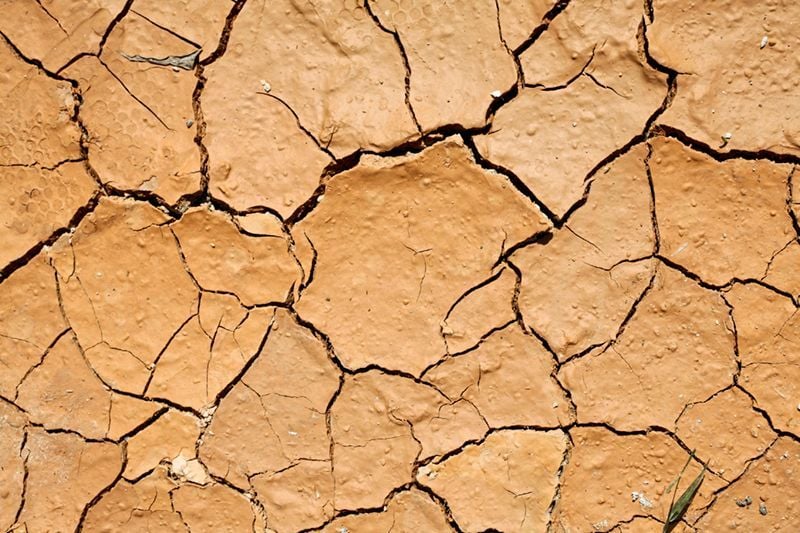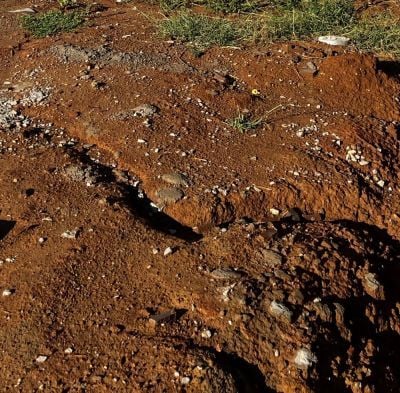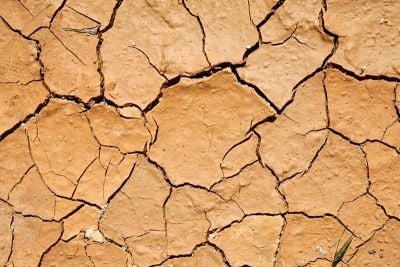Topics:
Search for topics or resources
Enter your search below and hit enter or click the search icon.
Providing your email address will keep you updated should we need to provide updates specific to your location.
October 26th, 2022 | 2 min. read
By Sarah Etler

A lot of Louisville’s soil is clay, which can not only be a challenge for your green thumb, but also an obstacle for keeping your concrete level and looking good.
Here at A-1 Concrete Leveling Louisville, we’ve seen what can happen to concrete when the clay soil takes its toll. We've also come up with ways you can slow down its effect.

This article will walk you through what makes Louisville’s soil special, how it affects concrete, and ways you can minimize the damage that comes with it.
Soil that’s generally considered “good” is well-draining and doesn’t hold onto excess moisture. Clay soil, on the other hand, can easily absorb and retain water, expanding on itself during the process. Clay soil goes through extreme expansion and contraction due to its high absorption and water retention rate.
The clay soil in Louisville easily hangs onto extra water, becoming thick and sticky. If you’ve ever stepped in the wet clay, you know that it’s a pain to clean off your shoes.
However, that water doesn’t stick around forever. When the clay soil dries out, it shrinks and contracts. This is when cracks appear in the soil, but they usually disappear when enough water has been reabsorbed and the clay expands again. Regular soil will usually remain crack-free, even when dry.
As a general rule of thumb, concrete is only as good as the soil or sub-material that it’s sitting on. This means that no matter the quality of the concrete itself, if it doesn’t have a good foundation underneath it, the slab will likely encounter problems, like settling.
Clay soil is not a great base for concrete slabs to sit on, as its constant expansion and contraction create a lot of movement. This movement can cause the concrete slab to move and heave out of place.
This heaving motion due to the continuous movement of the clay soil makes slabs on top of this sub-material more likely to settle and potentially require concrete leveling in the future.

Here are ways to help ease the effect that clay soil can have on your concrete slabs:
When new houses are built, the soil around them gets moved around and dug up, effectively loosening it. If new concrete is placed directly on top of this loose soil without being properly compacted, it will likely settle as the soil compacts over time.
Ensuring that clay soil gets properly compacted before pouring new concrete is especially important because it can help reduce the likelihood of settling.
Because the clay can absorb so much moisture, limiting the amount of water that has access to it can help prevent unnecessary expansion and contraction. Common water sources around the home are downspouts, gutters, and runoff, which can be controlled or redirected.
Limiting the flow of water under the slab and into the clay soil will help minimize the amount of heaving motion the concrete experiences, helping to reduce the likelihood of settling.
If your soil wasn’t properly compacted when poured and your concrete is experiencing heaving due to the expansion and contraction of the clay, you may just need to give it time to settle before a concrete leveling repair will be effective.
While fixing the uneven concrete may be tempting, being patient and allowing the concrete to settle will help make sure the soil is compacted enough to be a stable foundation.
Now that you know a little more about the soil in Louisville, you know why your concrete may be moving more than normal and at-risk of settling.
A-1 Concrete Leveling Louisville is made up of a team of concrete experts eager to take your soil into account when assessing your concrete’s needs and performing a repair.
Want to know more about concrete maintenance? Check out these Louisville topics from Concrete Academy:
Sarah Etler joined A-1 Concrete Leveling after receiving her Bachelor of Arts degree in English from Northern Kentucky University. As A-1's Content Marketing Manager, she works closely with industry experts to produce content that will best answer questions related to concrete repair and maintenance practices. Sarah loves living a life full of discovery and is excited every day to see what new things she can learn and share with those around her.
Topics: